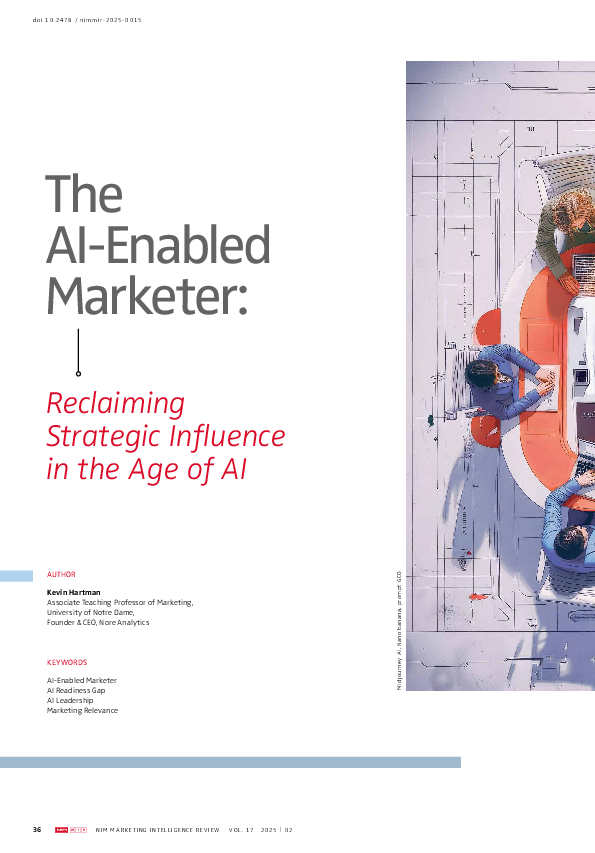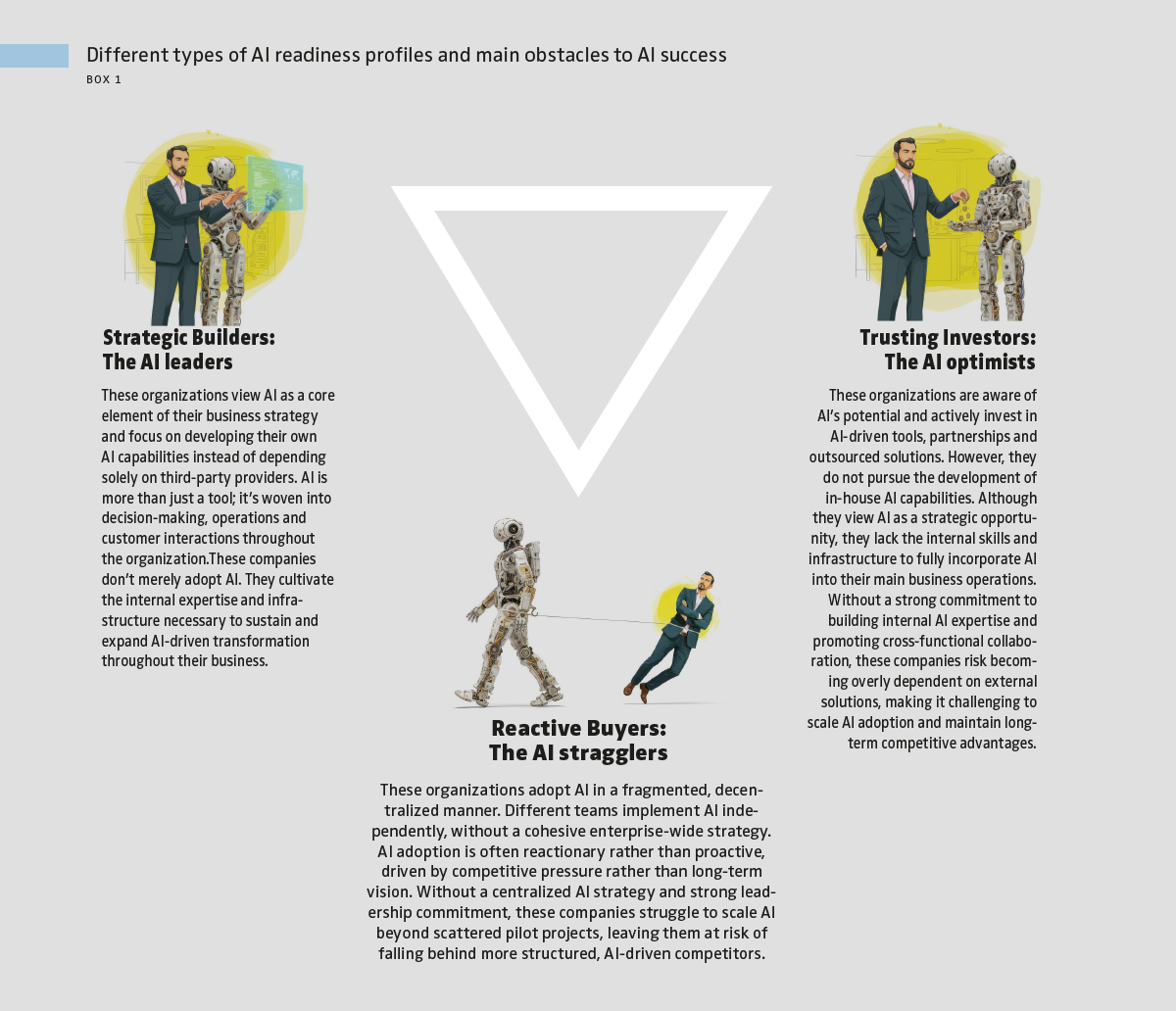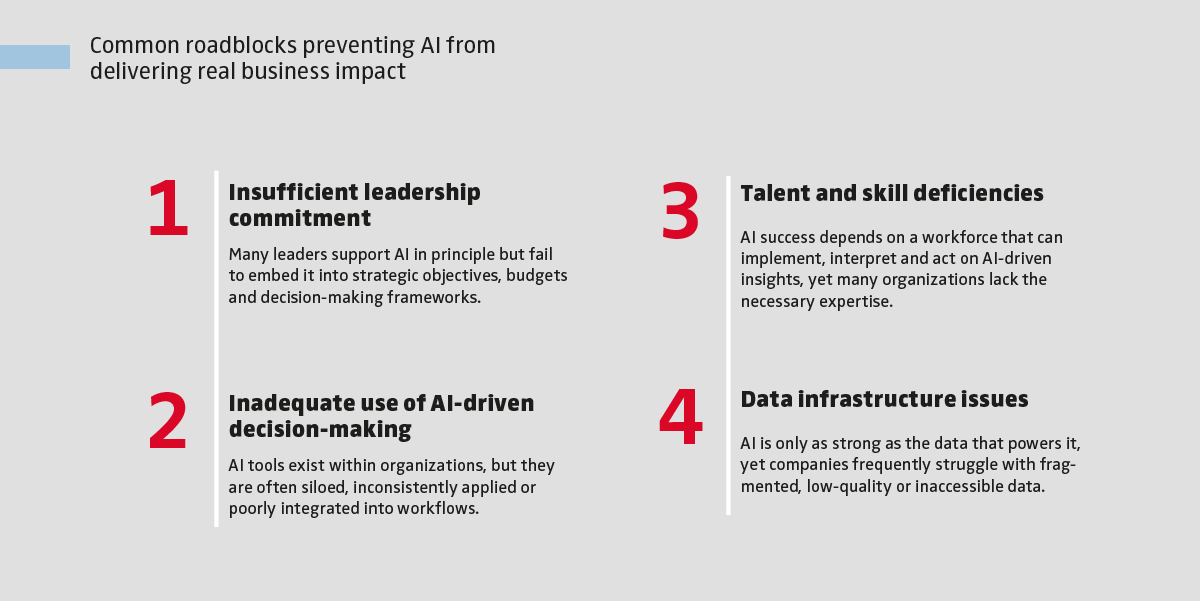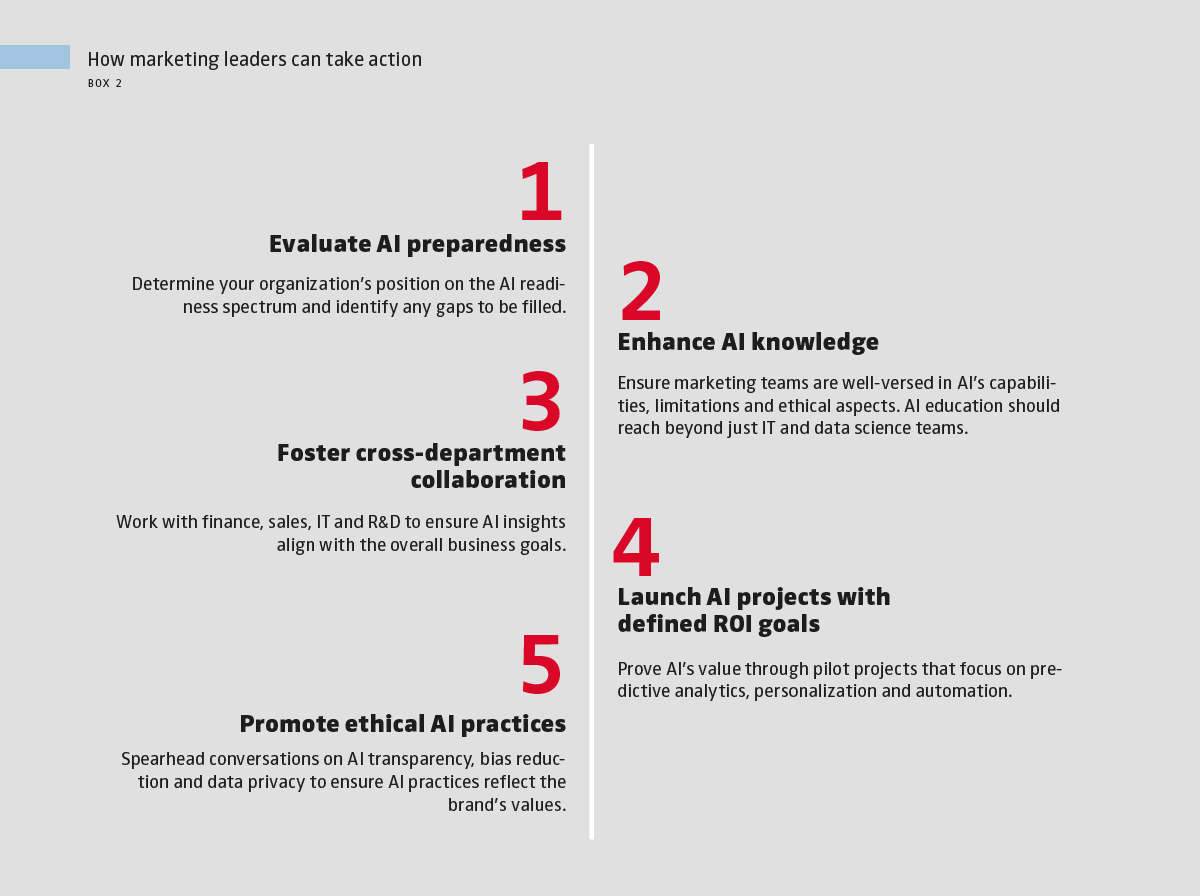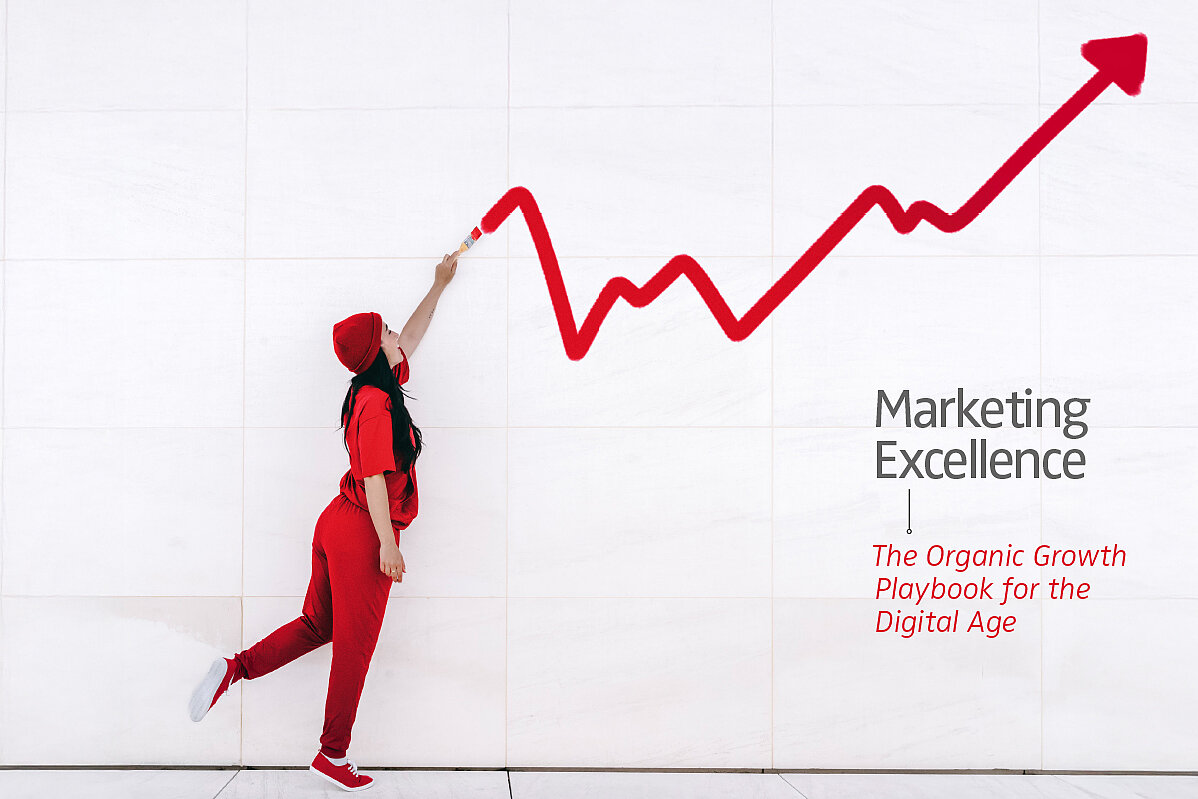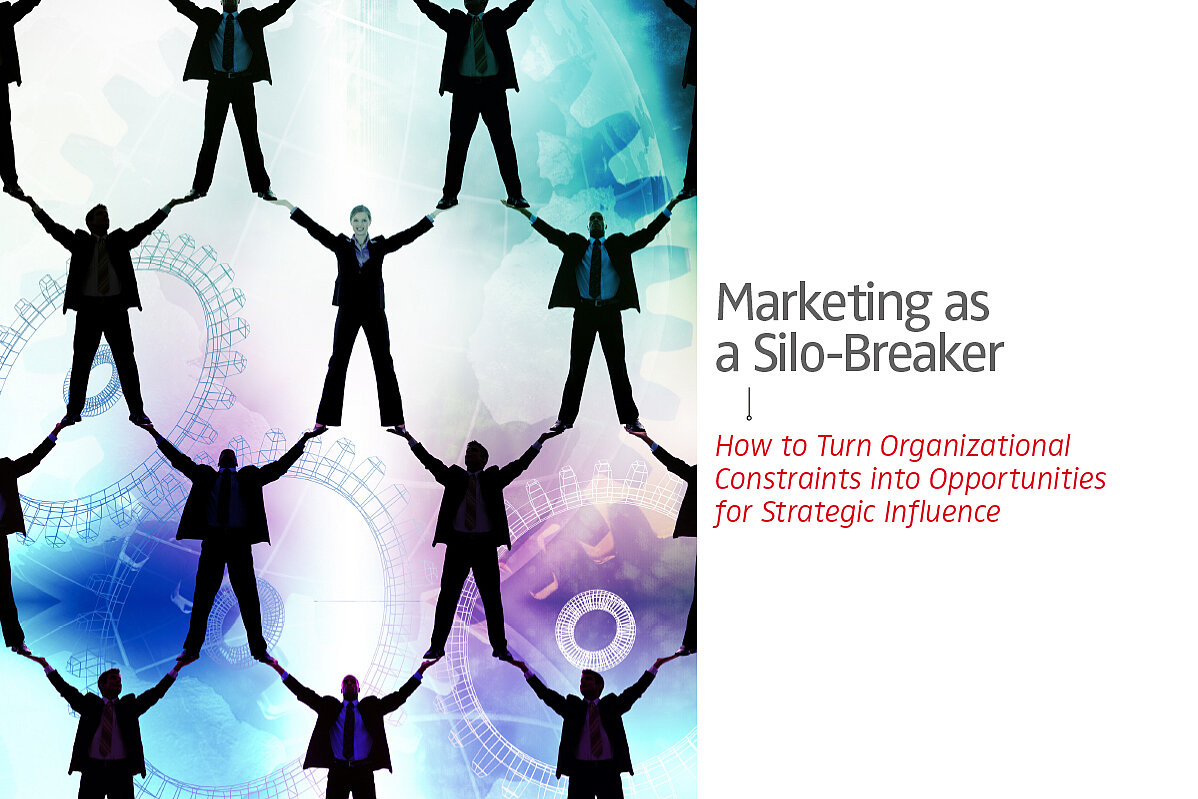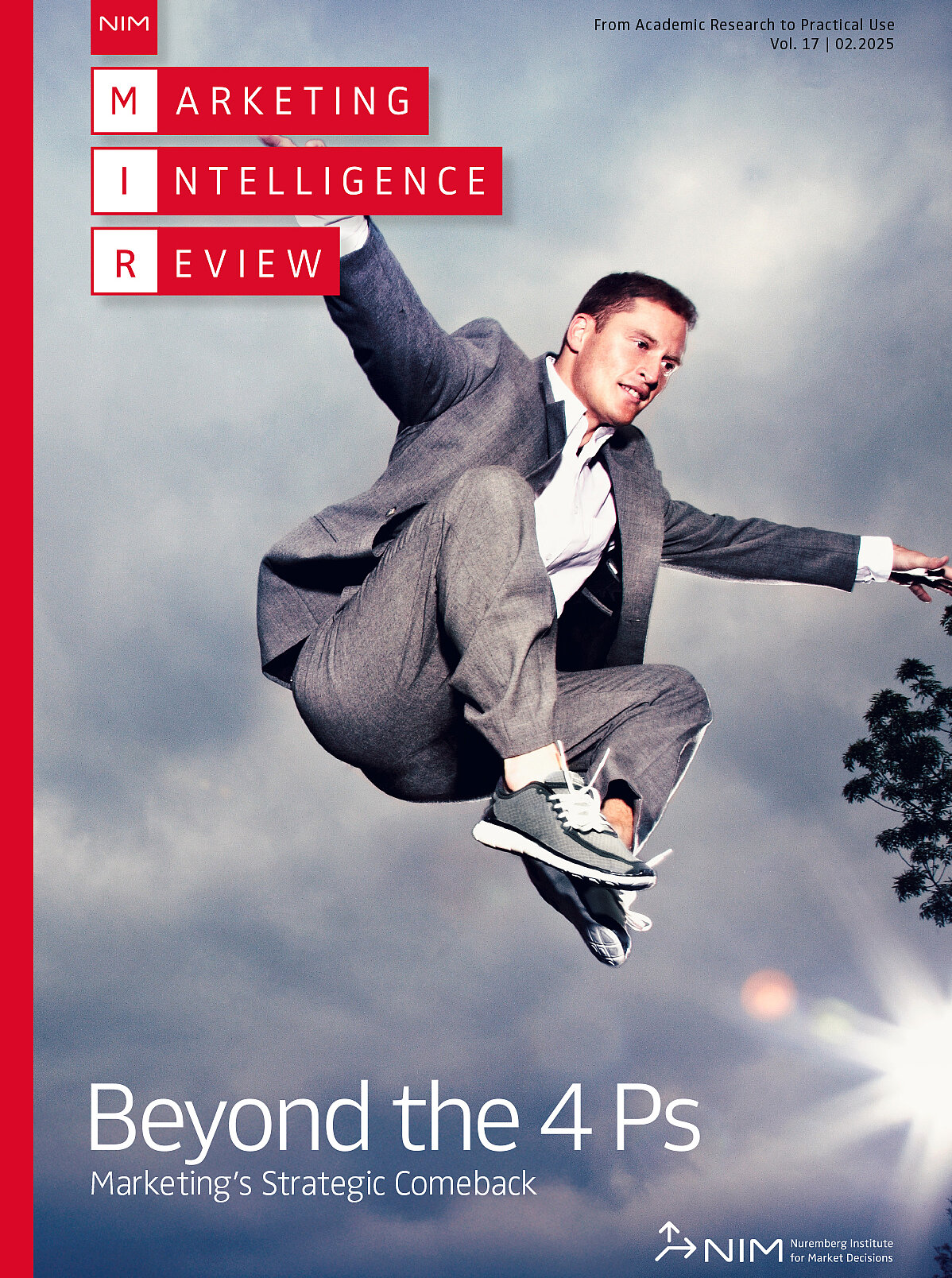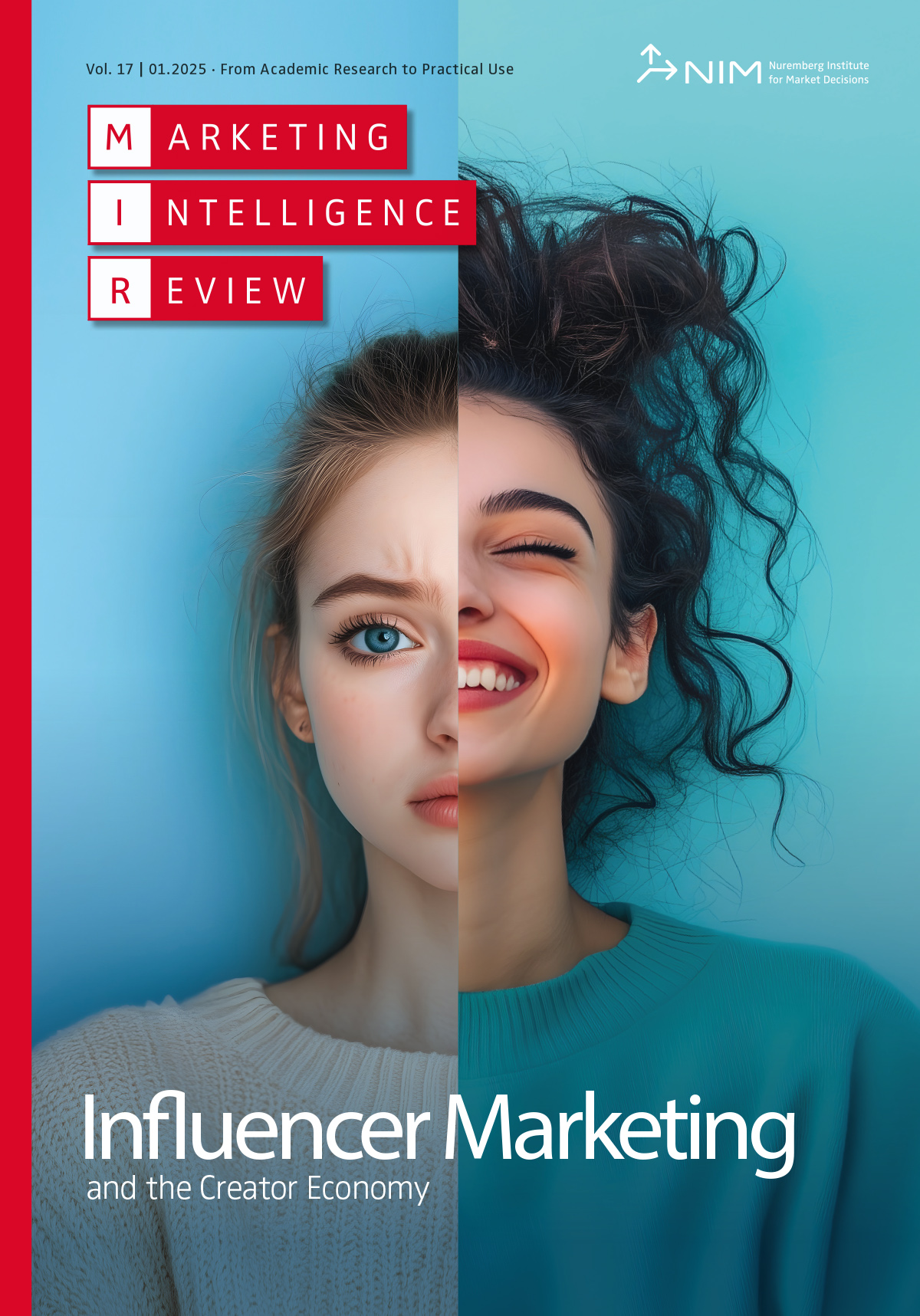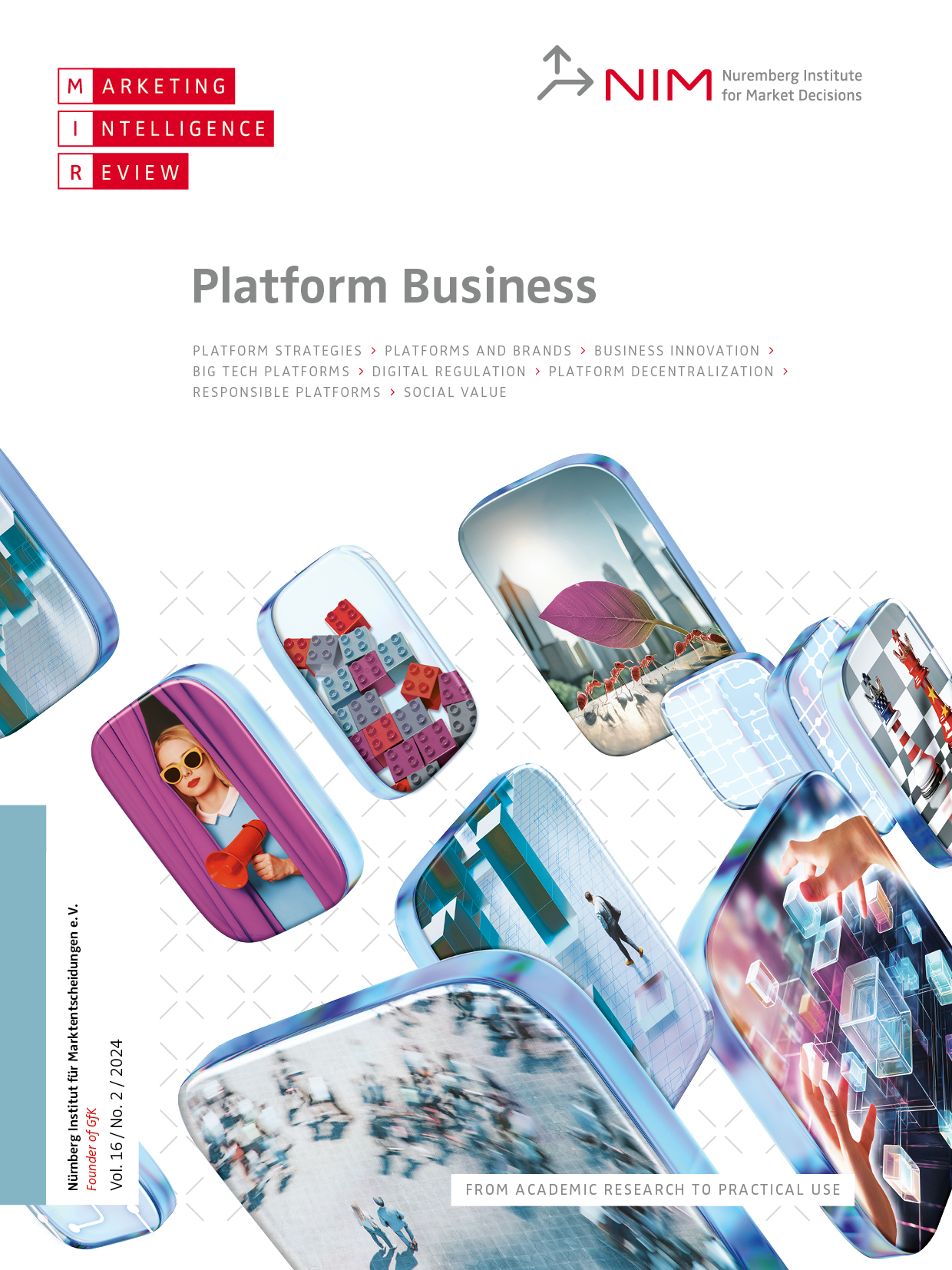The AI-Enabled Marketer: Building Strategic Influence in the Age of AI
For years, marketing was centered around the 4 Ps: product, price, place and promotion. Marketers not only were responsible for managing brand messaging and engaging with customers but also played a crucial role in determining pricing strategies, overseeing distribution channels, and even influencing product design. Today, this influence is fading in many firms. Pricing is increasingly controlled by automated algorithms and dynamic models. Product choices are primarily driven by R&D and operations teams. E-commerce giants and digital platforms dominate distribution, reducing marketers' control more than ever before. As these conventional marketing tools become decentralized, a pressing question arises: How can marketers regain their strategic influence? The answer lies in artificial intelligence (AI).
AI has evolved beyond a simple automation tool into a competitive advantage. Early adopters are using AI to boost efficiency, enhance decision-making, and generate new sources of value, transforming entire industries along the way. However, adopting AI successfully is easier said than done. Many organizations invest in AI expecting instant transformation but struggle to implement it effectively.
The AI readiness gap
I conducted executive interviews on AI readiness, followed by a broader survey of over 100 businesses. Using insights from the interviews, I established best practices that define full AI integration. In the follow-up survey, executives evaluated their organizations against these standards. This two-part study revealed a notable and unexpected finding: Senior leaders frequently believe their companies are AI-ready, while teams closer to implementation identify major hurdles that leadership overlooks.
This disconnect is more than just a difference of opinion. It has real consequences. When organizations overestimate their AI readiness, they fail to recognize the foundational challenges slowing their progress. This misalignment results in an AI readiness gap – the shortfall between an organization’s current AI capabilities and the level of maturity required to fully integrate AI into its operations. The consequence? Many companies invest in AI but fail to embed it into the fabric of their operations. Some organizations approach AI the right way, while others take a reactive, piecemeal approach that limits its impact. Not surprisingly, most companies in the study fell short of best-practice benchmarks. Box 1 describes different organizational profiles of AI readiness and key barriers to AI adoption identified in our research.
The AI readiness gap: A strategic opportunity for marketers
The gap isn’t unique to marketing; it exists across multiple functions. However, departments that actively work to close it can become key drivers of AI strategy and decision-making. Marketing is well-positioned to take the lead. Marketing operates at the intersection of data, customer behavior and business impact. AI-driven insights allow marketers to move beyond executing campaigns to assume cross-functional leadership roles that accelerate AI adoption across departments, guide strategic decision-making and deliver measurable business outcomes.
Marketing as spearhead of AI adoption within organizations
For marketing leaders, the key issue isn't just determining the current position of their organization but understanding how they can influence its path in AI development. If a company hasn't reached the level of a Strategic Builder, marketing leaders can facilitate the transition by advocating for AI adoption, dismantling silos and aligning AI projects with business goals. Since marketing should be the function most connected to customer insights, business strategy and data-driven decisions, it is ideally situated to close the AI readiness gap and guide the organization toward AI maturity. Marketing should promote AI as a strategic priority instead of a collection of separate tools, ensure that AI-generated insights guide decision-making across various departments and provide leadership with a better understanding of AI’s real-world challenges and opportunities.
The aim isn't merely to "tick the AI box"; it’s to embed AI deeply within the heart of your organization. Where is your company currently positioned? More crucially, how can you transition from being a Reactive Buyer to becoming a Strategic Builder? Marketing leaders who lead the charge in AI adoption won't just reclaim their influence; they’ll shape the future of their companies.
The aim isn't merely to "tick the AI box"; it’s to embed AI deeply within the heart of your organization.
AI-driven customer intelligence: Reclaiming marketing’s influence
One of the most transformative features of AI is its capacity for customer intelligence, which includes predicting behaviors, personalizing interactions and optimizing engagement on a large scale. However, many organizations struggle to effectively utilize this potential. AI enables marketers to surpass simple segmentation, allowing them to dynamically predict customer needs in real time. By using AI-driven analytics, marketers can forecast customer churn. AI models can identify early signs of disengagement, allowing marketers to proactively re-engage customers at risk of leaving. AI further allows for customizing customer journeys. It can evaluate past interactions and predict the most effective content, timing and channels for each customer. In addition, predictive models can identify which marketing investments offer the highest ROI, leading to more accurate customer segmentation, better budget distribution and optimized marketing expenditure.
Marketers who harness AI-powered customer insights do more than just run campaigns; they shape business strategy. Picture being able to identify which customers are likely to leave before they actually do, providing highly personalized experiences on a large scale and focusing investments solely on marketing channels that yield the greatest return on investment. This is the capability that AI offers.
Marketing as a cross-departmental leader: Predictive analytics and automation
AI’s influence extends well beyond customer insights. Predictive analytics and automation enable marketing to affect pricing, product development and overall business strategy. AI can assess demand trends, competitor pricing and customer willingness to pay, allowing marketing to provide real-time guidance to achieve an optimized pricing strategy. AI-driven social listening and sentiment analysis provide product development insights by uncovering emerging consumer needs, directing R&D teams toward innovations backed by data.
Further, AI allows for automated decision-making by facilitating the real-time optimization of media buying, creative testing and audience targeting – freeing marketers from manual tasks to focus on strategic planning. Marketing teams that effectively implement AI in these areas extend their influence beyond traditional boundaries, positioning themselves as significant contributors to broader business decision-making.
Ethical AI: A non-negotiable for marketing leaders
Ethical AI is essential, not optional. For example, Amazon discontinued its AI-powered hiring tool because it discriminated against female applicants by consistently downgrading résumés containing words like "women’s" or references to women’s colleges. Similarly, facial recognition technologies like Clearview AI have been shown by an MIT Media Lab study to misidentify Black and Asian individuals up to 100 times more frequently than white individuals.
These issues highlight the risks of inadequately regulated AI systems. Companies that fail to prioritize ethical AI risk consumer backlash, legal consequences and lasting damage to their brand reputation. As protectors of brand perception, marketers must take the lead in ensuring that AI aligns with brand values and fulfills customer expectations. So, what does responsible AI entail in the context of marketing? It is built upon crucial pillars:
> Transparency
Decisions made by AI should be understandable, explainable and defensible to both consumers and stakeholders. Marketers must ensure that AI-driven recommendations – whether related to content, pricing or customer engagement – are communicated clearly and meet consumer expectations.
> Bias mitigation
AI reflects the biases present in the data it is trained on. If unchecked, AI models might perpetuate systemic biases, negatively impacting marginalized communities. To address this, marketers should push for regular bias evaluations, use diverse training datasets and ensure ethical AI oversight within their organizations.
> Privacy protection
While AI relies heavily on data, preserving consumer privacy must be a priority. Marketers should lead the way in responsible data collection, implement clear opt-in procedures and strictly follow privacy laws such as GDPR and CCPA to uphold consumer trust and comply with regulations.
By actively participating in ethical AI governance, marketers not only mitigate risks but also enhance brand trust, foster customer loyalty and ensure long-term business viability.
The future belongs to AI-enabled marketers
The time when the 4 Ps defined marketing strategies has ended. To regain and/or strengthen strategic influence, it's crucial for marketing to take the lead in adopting AI. AI now stands as the key strategic advantage, and marketers who adopt it will not only stay relevant but also broaden their impact within their organizations. Box 2 suggests steps that marketing leaders can take right now to strengthen their position in their organizations. By bridging the AI readiness gap, integrating AI-driven insights into their decision-making processes and spearheading the ethical use of AI, marketing leaders can regain a significant role in strategic discussions. The decision is straightforward: Marketers who skillfully utilize AI will influence the future of business, while those who do not will fall behind.
FURTHER READINGS
Chui, M., Hall, B., & Henke, N. (2023). How generative AI can boost consumer marketing. McKinsey & Company.
Graham, M. (2024). Taco Bell and KFC’s owner says AI-driven marketing is boosting purchases. The Wall Street Journal.
The Australian (2024). Endeavour adopts tech-led production.
